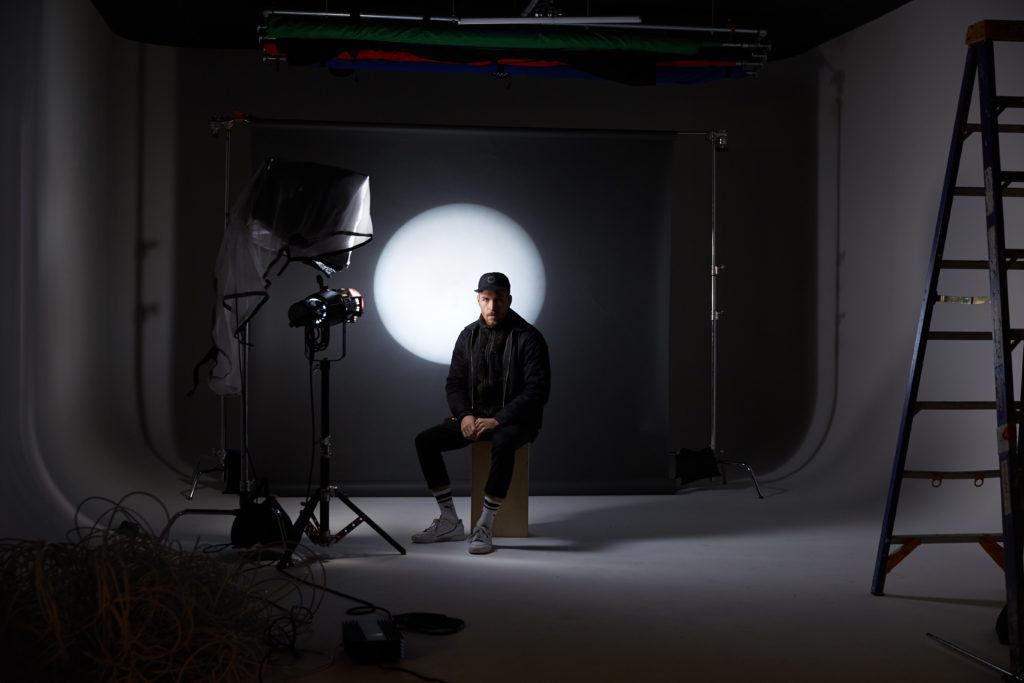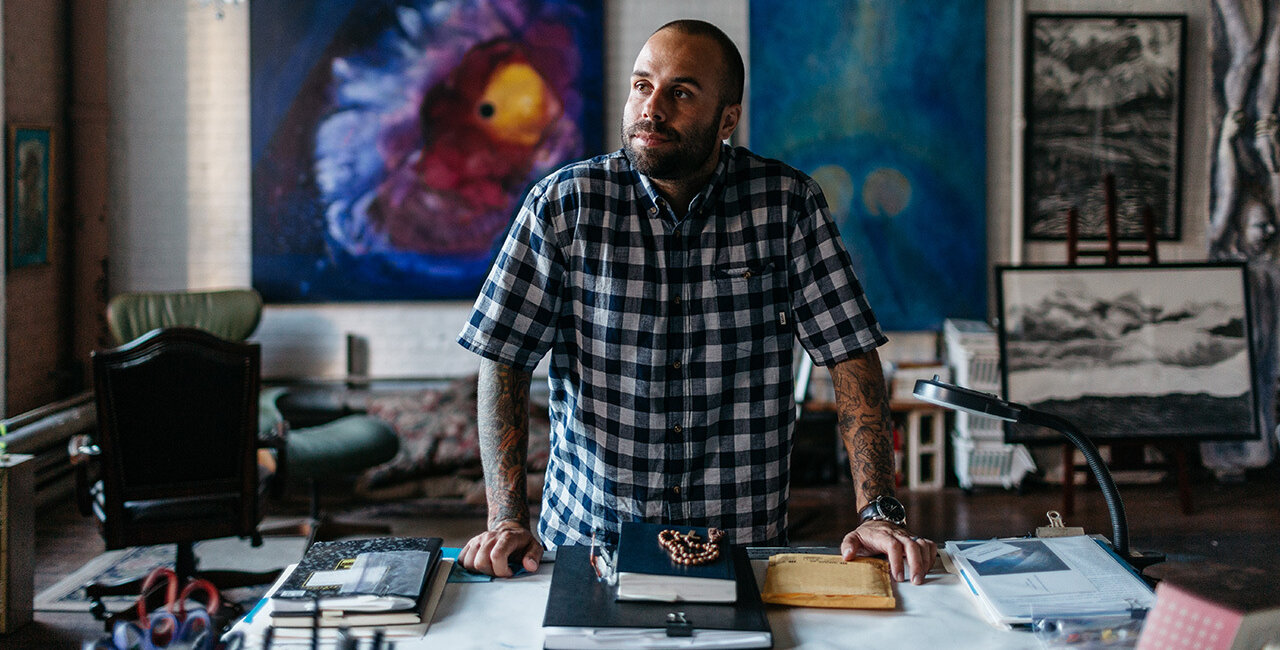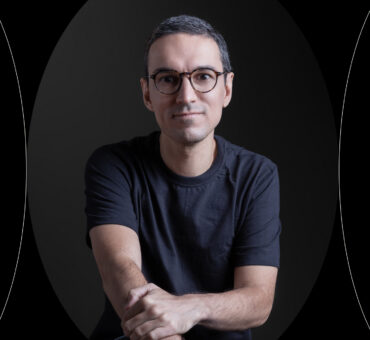We’re big fans of acclaimed filmmaker Eliot Rausch. His first film, the viral sensation Last Minutes With Oden, won the Documentary Award and Grand Prize at the Vimeo Festival. He’s won a Cannes Lion and a Clio and worked alongside Alejandro Iñárritu as director of A World Unseen, a complimentary piece to The Revenant, Iñárritu’s 2016 Best Picture Academy Award winner.
It’s easy to look at Rausch as a guy who has it figured out, locked down, etc. And maybe that’s true today, but, as he revealed on an episode of the Musicbed Podcast, his journey was a tough one, and his big wins were far from guaranteed.
Watching the episode, vulnerability is on display, and the many topics they discuss, when taken all together, unite under a common theme: Becoming the best filmmaker you can be requires working toward being the best human you can be.
Over the years, we’ve spoken with many other in-demand filmmakers about the ups and downs that served as milestones along their individual paths to success. Their stories are unique, but many of them had a time when imposter syndrome sucked the joy from all of it. Let’s hear what a few of them said about this far-too-common condition and find some tips for dealing with it in a healthy way.
You Know It When You Feel It
Here’s how Psychology Today describes imposter syndrome:
“People who struggle with imposter syndrome believe that they are undeserving of their achievements and the high esteem in which they are, in fact, generally held. They feel that they aren’t as competent or intelligent as others might think—and that soon enough, people will discover the truth about them. Those with imposter syndrome are often well accomplished; they may hold high office or have numerous academic degrees. “Sound familiar? Yeah, same. There are, of course, shades of imposter syndrome. Layers. Levels. It’s a tangled mess of insecurities, self-doubt, and even self-loathing for some. It’s a personal experience, a feeling that is often undefined or goes unnamed—it’s just something that’s there. Even for the greats. Even for someone like Salomon Ligthelm.
Acknowledge the Pain
We’ve spoken with Ligthelm before about imposter syndrome here on the Musicbed blog. We asked: “A lot of creative people deal with imposter syndrome. They think they’re frauds. Do you ever feel that way?” His response was direct and relatable.
“All the time. Especially in newer environments. It can be very challenging. When you’re in the same place for a long time, you can start to feel, like, hey, I’m pretty good at this. But the reality is, I don’t know what I’m doing. I think that’s what [living in] New York did for me. It just completely heightened that. All of these people are so far along in their creative journeys. You can let that either intimidate you or motivate you. For me, it was a reality check. If I’m honest, I feel like every good project I’ve done was a complete fluke. If something was great, it was pure serendipity.”

As mentioned above, when imposter syndrome hits, it hits differently for everyone. Here’s how it presents for Ligthelm.
“I was thinking about all of this in the elevator this morning. I was wondering if it’s worth it. Is it worth feeling uncomfortable, feeling pain, feeling absent and in my head, feeling slightly depressed? Is it worth it for my art?”
Ultimately, to manage imposter syndrome, you have to acknowledge it while keeping your eyes on the end goal of eventually, well, shaking it off. Easier said than done? Maybe. But acknowledging it is the first step to seeing it for what it is. For Ligthelm, understanding this showed him a way forward.
“I’d like to think all the pains are growing pains. It’s just part of the process that you have to go through. I’m trying to do things I’ve never done before.”
Silence the Doubt With Self-Improvement
In his Musicbed Podcast episode, Eliot Rausch highlights imposter syndrome-related feelings he experienced at a pivotal moment in his career.
“Alejandro Iñárritu calls randomly one day and says, hey, I want to executive produce your first feature. Give me your script. I’m going to these meetings. I have an agent. People are asking—where’s the script? Where’s the mastery, you know? Privately, I’m, like, I don’t even know what that is. I don’t know how to do that. I’m, like—my life is a big accident. I’m not really a filmmaker. I’m not a cinephile. But I have to prove that to people that I am if I’m going to exist in this space.”
What Rausch reveals here might best be identified as the downside of “fake it ‘til you make it.“ He had natural talent, a lot of it. Obviously. But then the dog caught the car, if you will. How did he handle this feeling—this fear of being exposed? He confronted reality head on.
“I got all the books. All the Masterclasses. I just started teaching myself screenwriting, just trying so hard to ensure that I had a vernacular and I had a talent that would match the opportunity that I was experiencing. I had to grow up and realize that there was actually a real fundamental skill and a toolset that I had to learn if I wanted a sustainable career.”
Finally—and importantly—in hindsight, Rausch is now able to understand the roots of his self doubt in a way that empowers him as a filmmaker.
“I remember my earliest memories, always being the watcher. You know, all the kids were playing, right? And I’d be watching them, observing them, and studying them. It’s this crazy paradox because I longed to be on the inside. I really did want to feel like I belonged.
Now, because I’ve done a lot of work, I feel like I totally belong in any given situation. I recognized that I love to be the watcher and the observer. I love to be the one asking questions and the one studying other people’s lives.”
Defeating the Creative Inferiority Complex
“When I won the Oscar, I thought it was a fluke. I thought everybody would find out, and they’d take it back.”— Jodie Foster
Eliot Rausch. Salomon Ligthelm. Jodie Foster. It feels good to know we’re not alone in our struggles with imposter syndrome. It would feel even better to know how to leave it behind. The following points taken from our blog article “How to Get Over Your Creative Inferiority Complex” might help. (We’ll touch on them below. Read the whole article here.)
CELEBRATE YOUR SUCCESS
People who feel like impostors often downplay their success. They assume it was either an accident or an unrepeatable burst of energy and effort, so they don’t call attention to it in case it never happens again.
Well, enough of that. Break the habit of considering your success anything other than the result of hard work, talent, and maybe a little luck. Start the habit of owning and celebrating the very real effort you put into your accomplishments. Never forget—your imposter syndrome is the accident. You didn’t earn it, you didn’t ask for it, and you don’t want it. The same thing can’t be said of your wins.
SET INTERNAL GOALS
To feel like an impostor, we need people around us. Because we judge ourselves through them, which isn’t fair to anyone — least of all us. To quell your impostor syndrome, you have to get yourself out of other people’s heads.
One way to do that is by setting your own internal goals for your work. What do you want your films to accomplish? What emotions do you want to elicit? What do you care about? Stop holding yourself up to other people’s standards. When you start making work for yourself, your impostor syndrome will naturally begin to fade.
HAVE CONVERSATIONS
We suspect that most filmmakers, no matter how successful they are, feel some sense of isolation. Filmmaking is lonely. And when you’re lonely, it’s easy to imagine you’re the only one in your situation. Here’s how Landon Van Soest, co-founder of the Brooklyn Filmmakers Collective, explains it:
“Filmmaking can be a really isolating process. We pour ourselves into projects that often span several years, with precious little outside support and no guarantee that anyone will ever see our work. So it’s easy to get lost in yourself. Having a community around you to support and push and challenge what you’re doing is essential.”
If you want to stop feeling like an impostor, stop treating yourself like one. Email a filmmaker you admire. Start a conversation. You might be surprised to learn that you’re not alone. We may all be outsiders, but that doesn’t mean we can’t be outsiders together.
REMEMBER: YOU’RE NOT THE ONLY IMPOSTOR
Related to the previous point and essentially every word in this article—the crazy thing about feeling like an impostor is that you have that in common with almost every other filmmaker. Your sense of not belonging makes you belong. This will go on forever and ever into eternity. As you get better at your craft, you will find yourself surrounded by increasingly talented peers.
Two things are certain—Their work will appear effortless. And they’ll be thinking the same thing about you.
Watch the latest episode of the Musicbed podcast, featuring an in-depth conversation with Eliot Rausch.





















































































